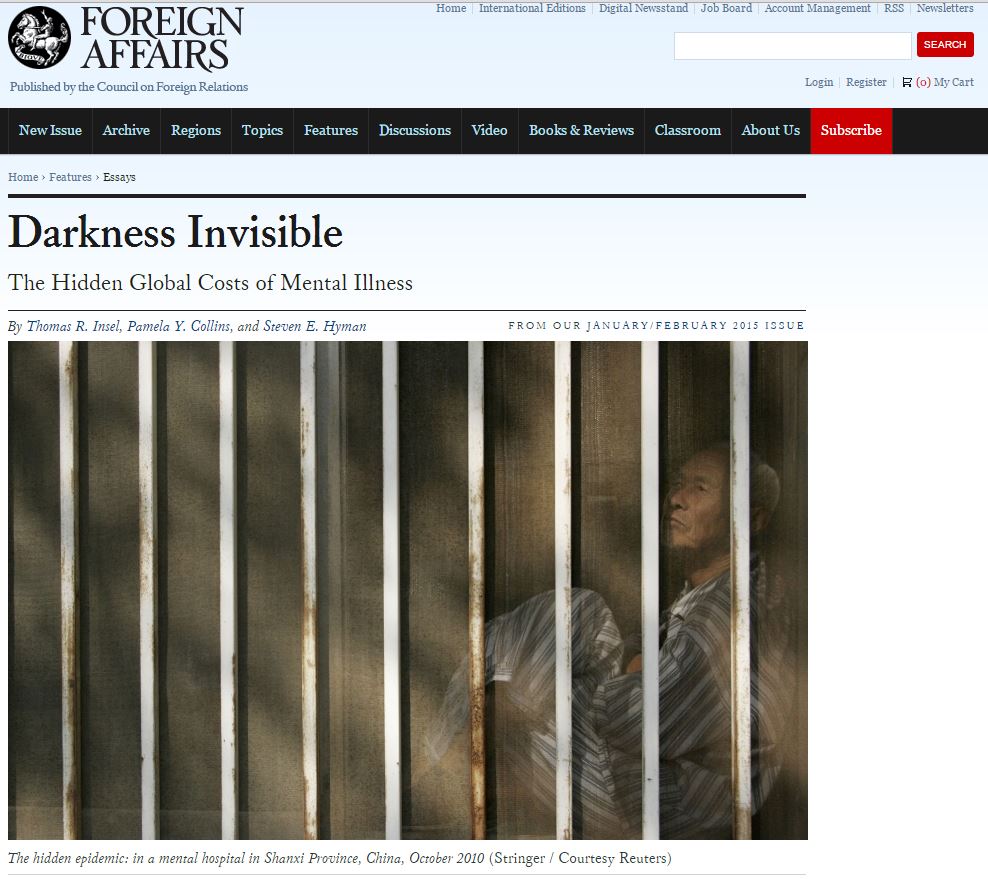Thomas R. Insel, Pamela Y. Collins, and Steven E. Hyman published in the February 15th edition of Foreign Policy Magazine a story entitled: Darkness Invisible: The Hidden Global Cost of Mental Illness
The story centers on a report developed four years ago by a team of scholars from the Harvard School of Public Health and the World Economic Forum. A key finding was noncommunicable diseases now pose a greater risk than contagious illnesses.
The report, which ties together the consensus among global health care officials and economists, predicted that the largest source of those tremendous future costs would be mental disorders, which the report forecast would account for more than a third of the global economic burden of noncommunicable diseases by 2030.
Key sentence from the impact describing the finding’s impact on policy:
Yet the report had virtually no impact on debates about public health policy, mostly because it did not manage to dislodge persistent and harmful mis-perceptions about mental illness.
So despite the evidence presented, mental illness is not treated as a serious policy issue in first world countries because it is for families and individuals to deal with. Whereas in the third world with scant resources” caring about mental illness is seen as a luxury.
It’s a long, but fascinating read.
JT
